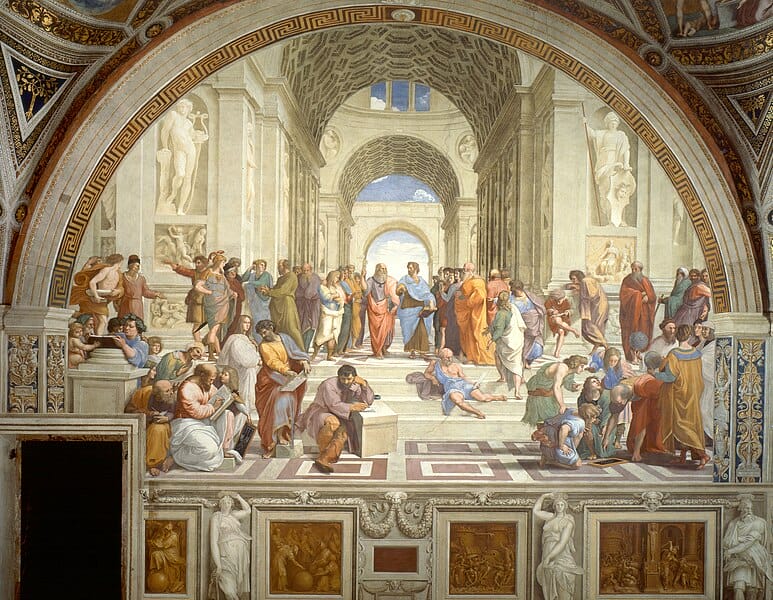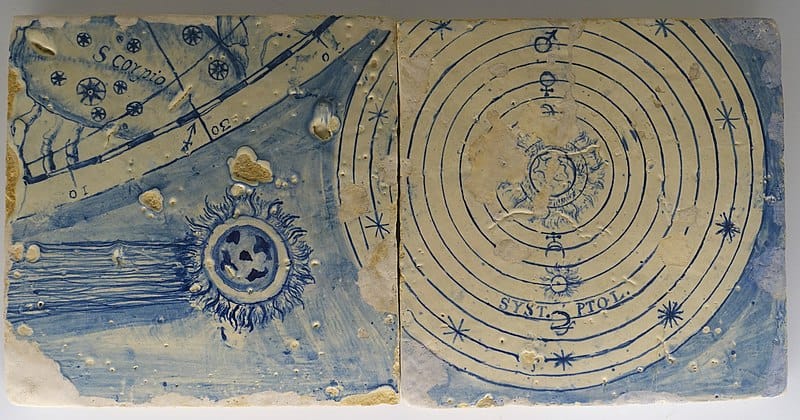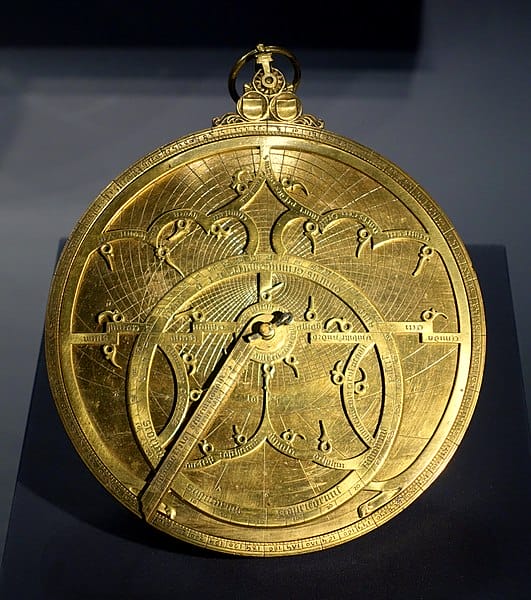Hypatia of Alexandria was an eminent mathematician, philosopher, and teacher in late fourth- and early fifth-century Alexandria. She was exceptional not only for her intellectual prowess in a male-dominated field but also because she was a prominent figure in a turbulent era where religious conflict was predominant. As a woman who carved out a space for herself in the areas of education and public discourse, Hypatia became an influential member of the Alexandrian society. Her work in mathematics and astronomy contributed significantly to the scientific discourse of the time.

Regarded as a leader in the Neoplatonic school of philosophy, Hypatia was respected for her deep knowledge and ability to convey complex ideas to her students and peers. Her legacy extends beyond her contributions to science and philosophy to include her role as a symbol of learning and enlightenment during a period that was often marked by intolerance and strife. Tragically, her life was brutally cut short by a mob in 415 AD, an event that has since been noted as a perfect example of the suppression of rational thought by fanaticism.
Key Takeaways
- Hypatia of Alexandria was a notable mathematician and philosopher in historically rich Alexandria.
- She played a key role in advancing Neoplatonism and was a beacon of learning and reason.
- Her tragic death marked a notable point in the history of the conflict between rationalism and fanaticism.
Life and Legacy of Hypatia
Hypatia of Alexandria emerged as a formidable mathematician and philosopher in late antiquity, leaving a legacy rooted in intellect and wisdom. Her life illustrates the vibrancy of academic pursuits in Alexandria and demonstrates the impact a single scholar can have on the intellectual world.
Early Life and Education
Hypatia of Alexandria was the daughter of Theon of Alexandria, a well-known mathematician and philosopher. Under her father’s guidance, she blossomed in her intellectual pursuits. Theon ensured that Hypatia received an education that was rare for women of her time, nurturing her talents in mathematics, philosophy, and science. Her education was wide and included the arts, literature, and physical exercise.
Teachings and Philosophy
Hypatia herself became a respected intellectual figure in Alexandria, known for her public lectures and teachings. Grounded in Neoplatonism, her philosophy emphasized the pursuit of knowledge. She taught a variety of students, not discriminating based on religion or social status, and her teachings often focused on the works of Plato and Aristotle.
Influence and Intellectual Contributions
As a scholar of great repute, Hypatia of Alexandria wrote on mathematics, astronomy, and philosophy, although few of her works have survived. Her contributions to scholarship are often linked with the annotations and commentaries on important mathematical and philosophical works of the time, such as Diophantus’s “Arithmetica” and Ptolemy’s “Almagest“. Her intellectual pursuits personified the vigorous academic spirit of Alexandria, influencing generations after her. Hypatia’s tragic death is said to have marked the end of the classical age of scholarship in Alexandria. Some even called her “the last ancient Greek”.
Hypatia’s Scientific Endeavors
Hypatia of Alexandria made significant contributions to the fields of mathematics and astronomy, and she also engaged in creating innovative technological tools during her time.

Contributions to Mathematics
Hypatia of Alexandria is often celebrated for her impact on mathematics. Amongst her most notable achievements, she is credited with further developing ideas from Euclid’s Elements – a foundational text on geometry. Her work included teaching and possibly extending the text, which became a crucial reference for mathematicians for centuries.
Works in Astronomy
In the realm of astronomy, Hypatia’s scholarship was comprehensive, encompassing both observation and theory. She is believed to have made advancements in the understanding of the Ptolemaic model of the universe – a geocentric cosmology that placed Earth at the center. Her studies likely involved the critical Almagest, Ptolemy’s astronomical treatise, although the specifics of her contributions to the text are not fully documented. Nonetheless, her astronomical work remained influential and hinted at her proficient grasp of complex divine mechanics.
Innovations in Technology
Hypatia of Alexandria is associated with the astrolabe, a device for solving problems relating to time and the position of the stars and planets. Though not the inventor of the astrolabe, Hypatia was known to have improved its design, making it more accessible and useful for astronomers of her time. Her enhancements to the astrolabe highlight her practical ingenuity and her ability to apply mathematical principles to technological challenges.

Death
Hypatia of Alexandria met a tragic and violent death in March 415 AD. According to historical accounts from that time, she was targeted by a mob of Christian zealots. The conflict leading to her murder was deeply connected with the political and religious tensions of the time, particularly the power struggles within the Alexandrian Christian church and Roman civic society.
Cyril, the Patriarch of Alexandria, was involved in a fierce rivalry with Orestes, the Roman prefect of the city. Hypatia, being a prominent and respected figure, was associated with Orestes and seen as a supporter of his policies, which opposed Cyril’s. Orestes often went for advice to Hypatia.
On the fateful day, Hypatia was abducted from her chariot while she was on her way home. The mob, led by a lector named Peter, dragged her to a church called Caesareum. There, she was brutally stripped of her clothes and savagely beaten. Accounts suggest that she was flayed with sharp tiles or oyster shells, causing her excruciating pain and suffering. After her death, her body was dismembered and the remains were taken to a place called Cinaron, where they were burned.
The murder of Hypatia was not just an act of personal violence but also a symbolic attack on the intellectual and cultural life she represented. Her death marked a significant point in the decline of the Hellenistic traditions in Alexandria and the rise of the dark ages of the Middle Ages where it was almost forbidden to think unless willing to meet a terrible faith.
Cultural and Historical Impact
Representation in Literature and Arts
Hypatia’s influence extended well beyond the mathematical and astronomical realms. Literature has often celebrated her story, casting her as a protagonist whose intellect and character challenge societal norms. A notable example is the novel by Charles Kingsley titled Hypatia, which, while fictionalized, brought her legend into the cultural zeitgeist of the 19th century and beyond. Art has also held Hypatia in high esteem, often portraying her in an idealized, beautiful manner that emphasizes her Neoplatonist philosophy.
- Novels: Charles Kingsley’s Hypatia
- Plays
- Paintings: Often emphasizing her beauty and intellectual poise.
Role as a Female Intellectual
Hypatia’s role as a female mathematician in the male-dominated society of ancient Alexandria is well-documented by historians. In a world where it was rare for women to be educated, Hypatia carved a place for herself as a leading scholar and teacher at the Library of Alexandria. Her expertise in mathematics, astronomy, and philosophy surpassed the expectations placed upon women in the Roman Empire. As a result, she became a symbol of the feminist movement, representing enlightenment and the pursuit of knowledge against the backdrop of societal restrictions.
- Scholarly influence: Renowned teacher and philosopher
- Feminist icon: Her legacy inspires movements for gender equality.
People Also Ask:
How did Hypatia of Alexandria die?
Hypatia of Alexandria met a tragic end in 415 AD when she was attacked by a mob in Alexandria. She fell victim to a politically charged assassination due to her influence and connections with the political elite of the time.
How old was Hypatia of Alexandria when she died?
Hypatia of Alexandria was born somewhere around 360 AD and was approximately 55 years old at the time of her death in 415 AD.
What contributions did Hypatia make to mathematics?
Hypatia of Alexandria contributed to mathematics through her work on geometry and algebra. She edited the work “Arithmetica” by Diophantus and also commented on Apollonius’s treatise on conic sections, providing insights that would influence future mathematicians.
What is Hypatia of Alexandria renowned for?
She is renowned for her role as a Hellenistic Neoplatonist philosopher in Roman Egypt and as a leader of the mathematical and astronomical studies at the Library of Alexandria. Her teachings and intellectual discourse attracted many students and followers.
Why did Hypatia choose to remain unmarried?
Hypatia of Alexandria chose to remain unmarried to devote herself entirely to intellectual pursuits. Her celibacy was in line with the Neoplatonic ideal that personal asceticism could lead to deeper philosophical understanding.
In what ways did Hypatia impact the world?
Hypatia’s impact on the world was multifaceted. She influenced the fields of mathematics, astronomy, and philosophy, and she was a symbol of learning and culture in Alexandria. Her legacy continued to inspire scholars and feminists centuries after her death.
What are 5 interesting facts about Hypatia?
- She helped her father in his research of Euclid’s Elements.
- She wrote about Apollonius of Perga.
- She wrote an article on Diophantus of Alexandria’s Arithmetic. …
- She constructed devices like Astrolabe. …
- Another device she built was the Hydrometer.
Hello, my name is Vladimir, and I am a part of the Roman-empire writing team.
I am a historian, and history is an integral part of my life.
To be honest, while I was in school, I didn’t like history so how did I end up studying it? Well, for that, I have to thank history-based strategy PC games. Thank you so much, Europa Universalis IV, and thank you, Medieval Total War.
Since games made me fall in love with history, I completed bachelor studies at Filozofski Fakultet Niš, a part of the University of Niš. My bachelor’s thesis was about Julis Caesar. Soon, I completed my master’s studies at the same university.
For years now, I have been working as a teacher in a local elementary school, but my passion for writing isn’t fulfilled, so I decided to pursue that ambition online. There were a few gigs, but most of them were not history-related.
Then I stumbled upon roman-empire.com, and now I am a part of something bigger. No, I am not a part of the ancient Roman Empire but of a creative writing team where I have the freedom to write about whatever I want. Yes, even about Star Wars. Stay tuned for that.
Anyway, I am better at writing about Rome than writing about me. But if you would like to contact me for any reason, you can do it at contact@roman-empire.net. Except for negative reviews, of course. 😀
Kind regards,
Vladimir
